Getting to know Bob Dudolski
Bob Dudolski never expected to join a fraternity while in college. Now he’s Eastern’s director of Greek Life. He sat down with The Daily Eastern News’ News Editor Sarah Whitney to talk about the discrimination Greek students encounter, the differences of Eastern’s Greek Life compared to other universities and diversity in the Greek community.
Question: Define Greek Life.
Answer: One of the usual definitions I give when I get that question from parents is its kinda all the extracurricular activities under one roof. We’re able to provide extracurriculars under one student organization when other student organizations usually only hit one of those. … And that can be everything from leadership development, community service, philanthropy, athletic opportunities and academic support, on top of entertainment value as well.
Q: Diversity is a hot topic on campus right now since Tim Wise just visited campus last week. I’m curious to know what kind of role diversity plays in recruitment for the sororities and fraternities?
A: As far as it playing a specific role there’s no hindrance for anyone to go through requirement. We have seen students from all backgrounds join a fraternity or a sorority. We do have specific fraternities and sororities that focus on a cultural or ethnic background. But in looking at the membership of our fraternities and sororities, they have shown that they have had a representation of the diverse students on our campus. Even (so much) that the cultural based fraternities and sororities have had students outside of their cultural base heritages join the organizations.
Q: What are all the different groups that you advise?
Answer: All fraternities and sororities that are represented through the Greek life office have incorporated national not-for-profit councils. We’re basically governed by the national fraternities and sororities. I advise NPHC, IFC, and then PHC, which is the (Historically Black Greek organizations). We are also seeing a new Latino sorority start this year. We haven’t gotten them affiliated with a council, but once they get up and running we’ll have them join one of the umbrella organizations on campus.
(I also advise) auxiliary Greek organizations, some of the community service groups and I oversee Greek Housing.
Q: How is Eastern’s Greek life different from other universities?
A: The most visible difference is our housing structure. Majority of students live in Greek Court, which is university owned and operated. (This is unusual compared to other universities.) The commitment that Eastern has made to Greek Life on our campus is a stronger commitment than other universities by providing (students) with a place to live.
The other thing that would separate Greek Life compared to other schools is the level of education and support given to our chapters. That is shown through some of the national recognition given to the chapters based on the programming and support services that our council provides to the local chapters. Basically (Eastern Greek students) are seen as innovative leaders in the Greek world. Many other universities have come and visited Eastern, basically to model some of their housing off of our housing here.
Q: It’s common to hear the phrase that when students join a fraternity or sorority they are just buying friends. So what are they really buying?
A: The cost of joining a fraternity and sorority, . there is a portion that goes to the national organization that supplies these students with insurance overage as well as education and leadership opportunities that they can attend. And there’s a variety of leadership programs that they can go to throughout the year. Locally, funding would go toward the general operations. I don’t know any organization – even the smaller groups on campus – that doesn’t need a budget to operate. When you have a fraternity or sorority that has a membership of 90 to 100 members you’re going to see a budget that reflects the size of the organization.
Q: What are some of the advantages of being Greek?
A: Like I mentioned for first question, one of the major advantages, depending on your interests, is that you’re going to be able to find something that fits your needs under one roof.
No matter what your interest is you’re going to be able to find an outlet for those talents through the fraternity or sorority that you join. So if you’re interested in leadership opportunities, community service, philanthropy, academic support, athletic opportunities, a stronger connection to the university itself through a larger circle of fiends, plus a life time commitment to the university and the organization. The other thing that we have found is there are two benefits that have shown themselves to the university: one is that students who get involved in leadership opportunities have higher retention rates and graduation rates. And the other thing is that Greek students, Greek alumni have a stronger commitment to the university and are generally more loyal when it comes to being alumni and more committed to give back to the university as an alumnus.
Q: Now the flipside of the last question. What are some of the disadvantages?
A: Honestly, I don’t know of any disadvantages of joining. It’s one those . if you don’t put anything into the experience you’re not going to get anything out of it. So based on your intentions for joining, will basically dictate what you get out of the experience. If you just join for the sake of joining, without any personal background of what you want to get out of the experience, it will probably be a four-year club. But those people, who work to get something out of their experience, will be the ones who benefit the greatest.
Q: How did you become Greek?
A: When I attended the University of Iowa. I really had no intention of joining a fraternity. But I was walking through the university union and there were a couple of guys with a display table set up about their frat. And they stopped me and started up a conversation with me. And through that conversation, they basically changed my mind regarding joining a fraternity. (They) encouraged me to come to some of their events and to get to know some of the guys. Because I had a positive experience, I decided that I would join the organization. Within a couple of weeks I ended up joining Delta Sigma Phi.
When I came to Eastern as a grad student, I became a chapter adviser which then basically encouraged me to get more involved in fraternities and sororities, not only did I end up becoming director of Greek Life, but I was also elected to serve on the national board of Delta Sigma Phi, and I currently the national vice president.
Q: What is the best part of your job? Why?
A: The students. We definitely have a family feel in our Greek community. I think one of the most rewarding things for me is knowing that the Greek students on this campus have a genuine love and concern for each other and for the university and because they continually challenge each other to do better in everything that they do. Basically it inspires me to do this job and stay involved here. There’s some pretty awesome leaders on this campus.
Q: Recently, the Daily Eastern News covered an event sponsored by Student Government that addressed diversity on campus. The reporter quoted a Greek student who talked about how Greek students are discriminated against, in addition to other groups. What are you thoughts on this?
A: I think there is a reverse discrimination that does go on at times. I think that some of the national media attention that some universities have, it’s easy to target Greek students, even at the local level here where our Greek community is pretty strong. … I am aware of classroom situations where there have been students who have been singled out and treated different and not based on their own personal merit. I don’t think it’s a huge problem here at Eastern … but sometimes based on someone’s personal background with Greek life at another university that can sometimes spill into their perceptions of Greek Life here, without having full knowledge of the positive relations that Greek life has with our university.
Just as with any stereotype, it’s easy to blanket an entire population rather than base your opinions on the individual for their own merit.
It’s too easy to label people.



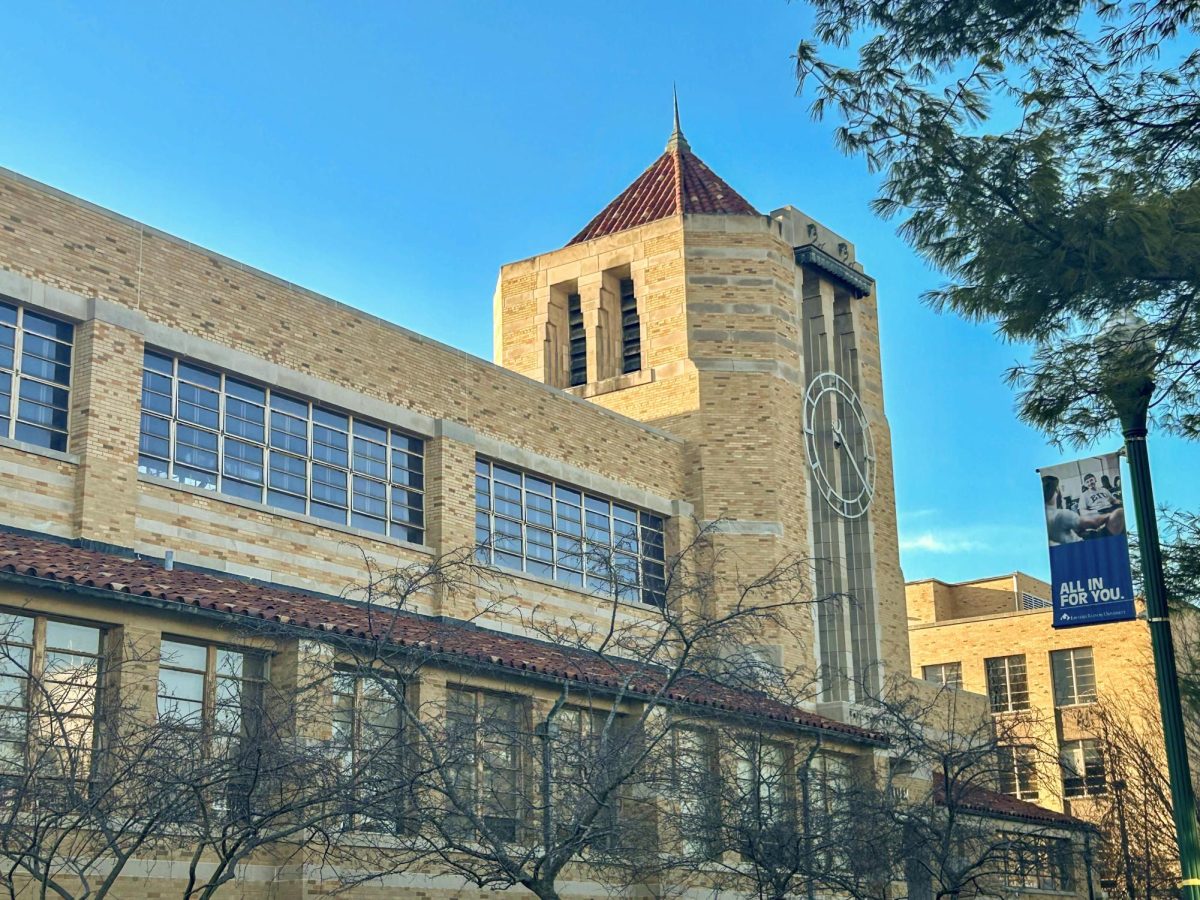

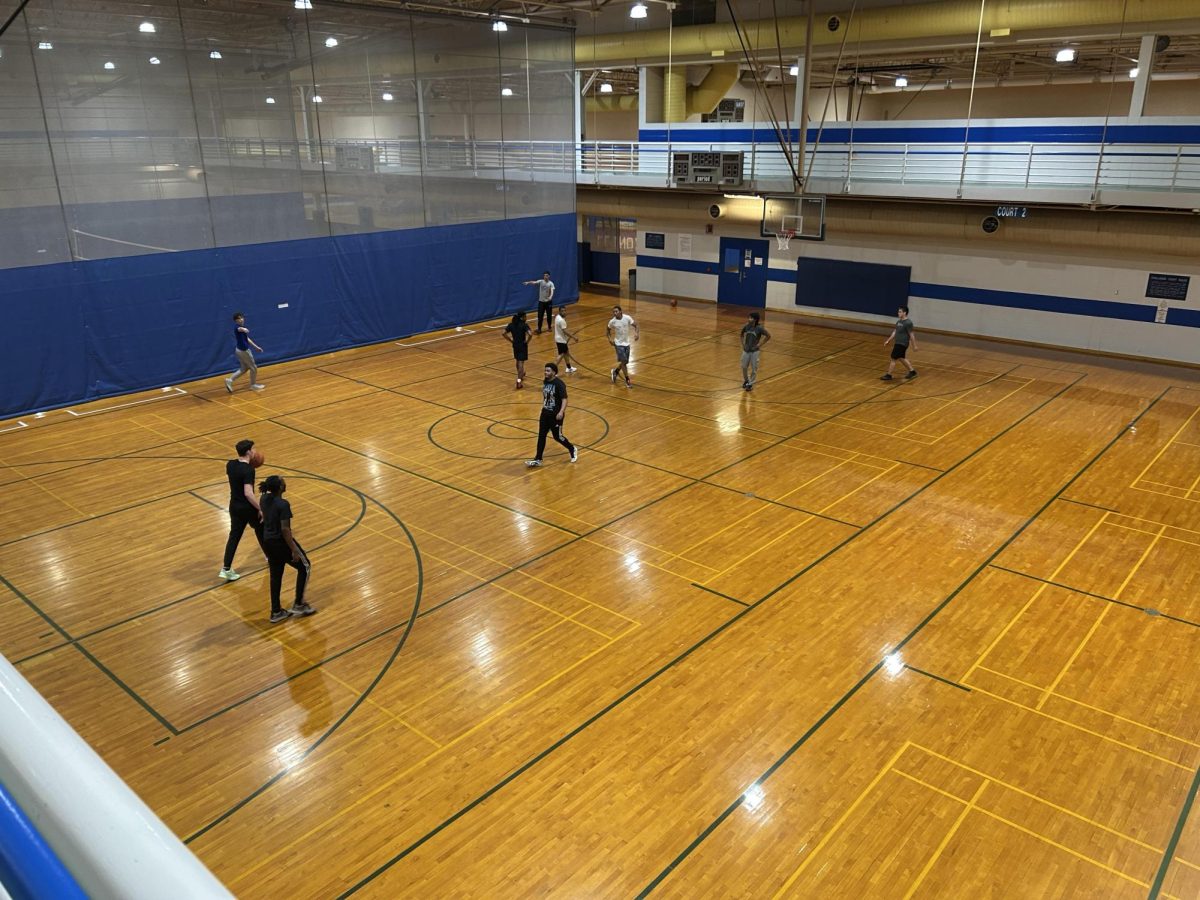
![[Thumbnail Edition] Senior tennis player Luisa Renovales Salazar hits the tennis ball with her racket at the Darling Courts at the Eastern Illinois University campus in Charleston, ILL.](https://www.dailyeasternnews.com/wp-content/uploads/2025/03/Tennis_01_O-1-e1741807434552-1200x670.jpg)


![[Thumbnail Edition] Senior right-handed pitcher Tyler Conklin pitching in the Eastern Illinois University baseball team's intrasquad scrimmage at O'Brien Field in Charleston, Illinois on Jan. 31.](https://www.dailyeasternnews.com/wp-content/uploads/2025/03/TC_01_O-e1741567955534-1200x669.jpg)






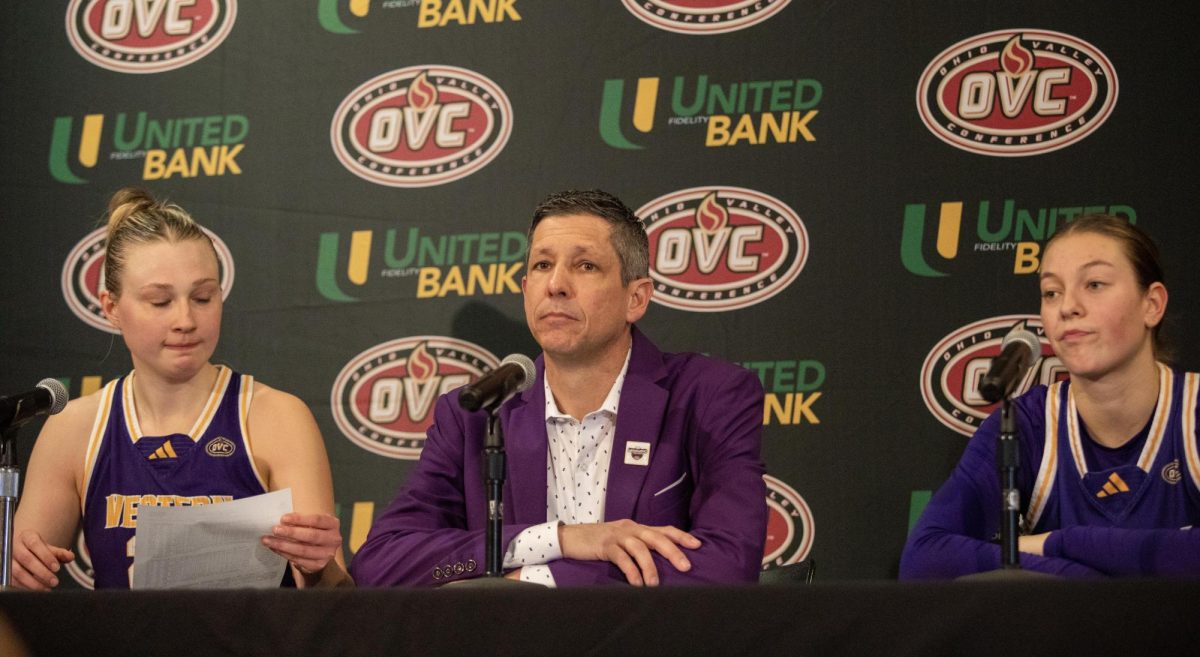
![[Thumbnail Edition] Senior, forward Macy McGlone finds an open teammate to pass the ball too during the game against the Tennessee State Tigers 69-49, in Groniger Arena on the Eastern Illinois University campus, Charleston Ill.](https://www.dailyeasternnews.com/wp-content/uploads/2025/03/WBB_02_O-1-e1741228987440-1200x692.jpg)


















![E[Thumbnail Edition] Eastern Illinois softball freshman utility player Abbi Hatton deciding to throw the softball to home plate in a fielding drill during softball practice at the field house in Groniger arena on Tuesday Feb. 11.](https://www.dailyeasternnews.com/wp-content/uploads/2025/03/SB_03_O-e1741208880750-1-e1741209739187-1200x815.jpg)
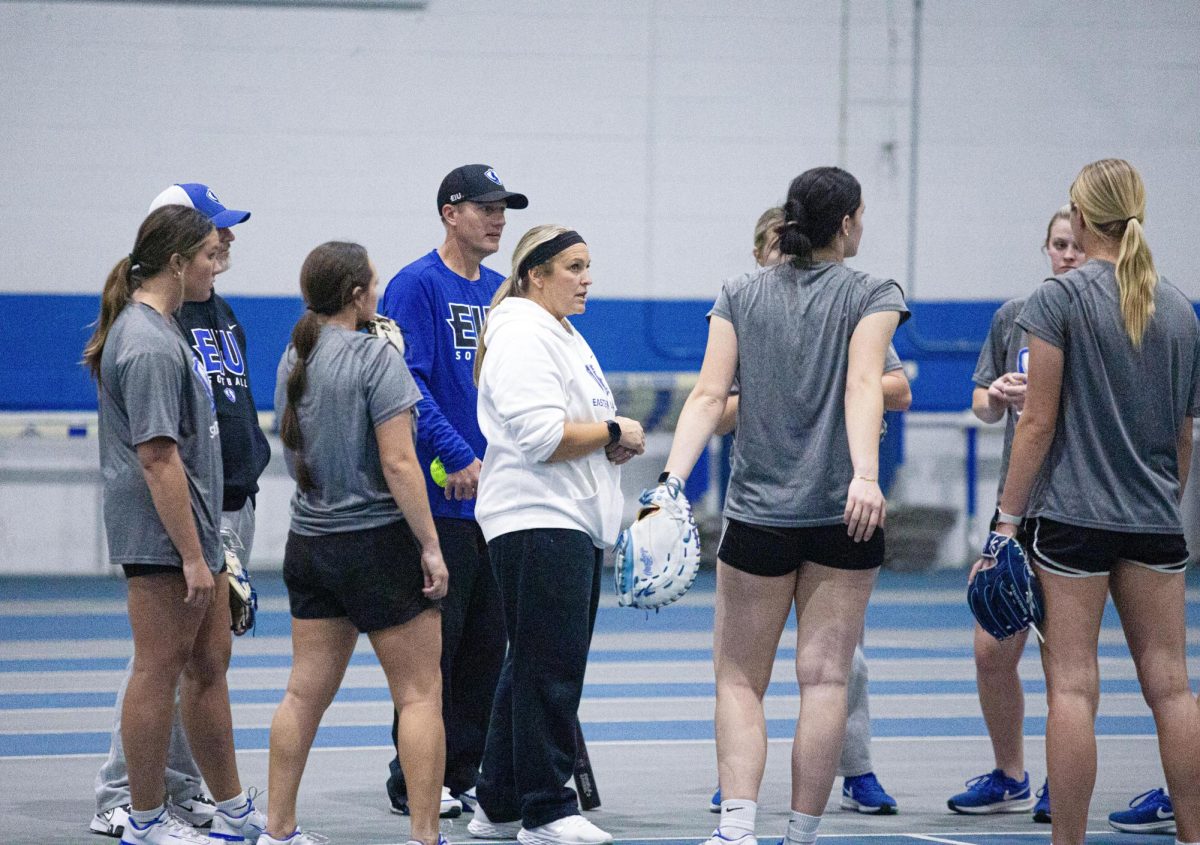
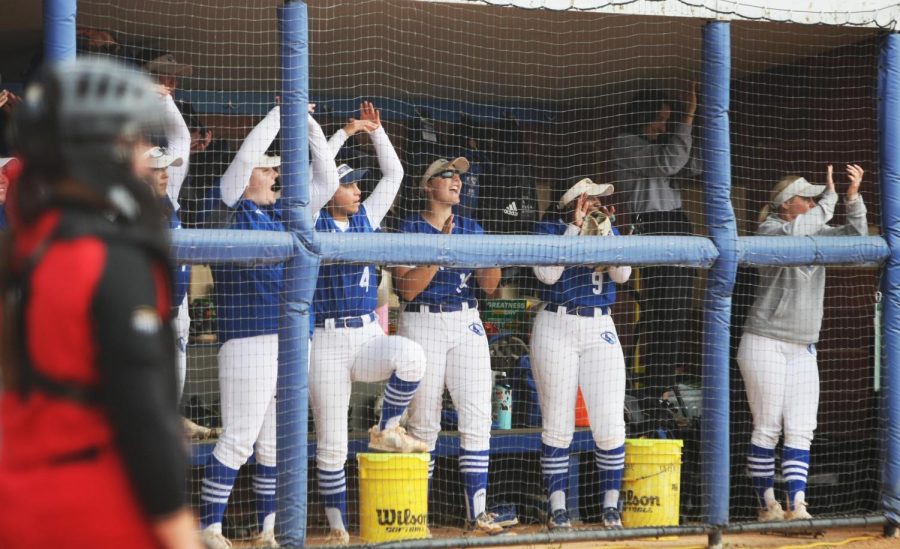













![The Weeklings lead guitarist John Merjave [Left] and guitarist Bob Burger [Right] perform "I Am the Walrus" at The Weeklings Beatles Bash concert in the Dvorak Concert Hall on Saturday.](https://www.dailyeasternnews.com/wp-content/uploads/2025/03/WL_01_O-1200x900.jpg)
![The team listens as its captain Patience Cox [Number 25] lectures to them about what's appropriate to talk about through practice during "The Wolves" on Thursday, March 6, in the Black Box Theatre in the Doudna Fine Arts Center in Charleston, Ill.](https://www.dailyeasternnews.com/wp-content/uploads/2025/03/WolvesPre-12-1200x800.jpg)



















